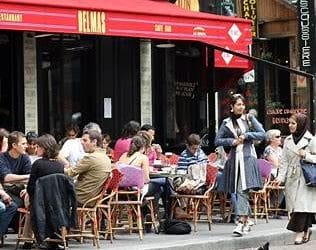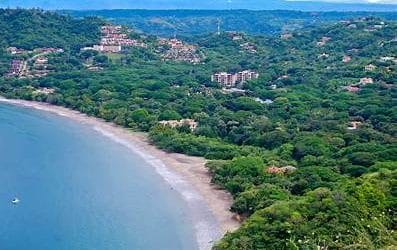Costa Rica has legalized hemp production and commercialization, as well as cannabis for medicinal and therapeutic purposes. This article provides an overview of what this means and the steps involved for those eligible.
In March 2022, the congress approved the law N° 10113, “Ley del cannabis para uso medicinal y terapéutico y del cáñamo para uso alimentario e industrial.” The new law was published in La Gaceta number 46 on March 09, 2022.
Hemp and marijuana plants have some general similarities as a species of the cannabis genus. Some crucial differences between them are as follows.
- Non-psychoactive: Hemp has a minimal percentage of tetrahydrocannabinol (THC), the central molecule related to marijuana’s neuronal effects. Hemp plants contain around 0.3% of THC, while marijuana’s THC content ranges from 5% to 35%, depending on the strain.
- Growth height: Hemp plants can reach a height of 4 meters, while marijuana plants can grow up to 2 meters.
- Growing cycle: Hemp crops take around 120 days to grow, compared to 90 days for marijuana.
- Usage: Hemp can be used in the construction, food, health, and clothing industries. Marijuana is commonly used for medical, therapeutic and recreational purposes.
How is the legalization of marijuana and hemp going to work in Costa Rica?
The Costa Rican government will issue licenses to authorize the cultivation, harvesting, processing, storage and transport of medical marijuana and hemp. In addition, permits can be issued to import and distribute products made of hemp or marijuana.
License applicants must have no criminal background records related to drug dealing, corruption, or money laundering, and shall comply with sections 8, 9, and 10 of Law N° 10.113 and its regulation. The basic steps and requirements for license applicants are outlined below.
- Legal capacity: Individuals of legal age may act on their own or represent a corporation, with proof of the corporation’s legal existence and good standing.
- Description of the project: A detailed description of the project and its financing sources must be provided, subject to a background check performed by the appropriate authorities.
- CCSS: License applicants must be registered as employers in the Caja Costarricense de Seguro Social (social security) and be up to date in all municipal and tax obligations.
- Government institutions’ periodic inspections: All authorized projects will be subject to regular checks performed by the Instituto Costarricense Sobre Drogras (Costa Rican National Drugs Institute), Ministerio de Agricultura y Ganadería (Agriculture Ministry), and/or Ministerio de Salud (Health Ministry). These institutions can take samples of the crop or the product that is being commercialized.
After the documents mentioned are submitted, the government will have up to 30 days to review them and give a formal resolution.
Depending on the license being sought, the Ministerio de Salud (Health Ministry) or the Ministerio de Agricultura y Ganadería (Agriculture Ministry) will have more specific requirements and request detailed information to grant any of these four available licenses.
- License to cultivate
The permit granted in this category is for agriculture projects, including importing seeds (if needed), growing, harvesting, and distributing. The product could be commercialized in Costa Rica and/or exported to foreign markets where marijuana and hemp are legal. This license is issued by the Ministerio de Agricultura y Ganadería (Agriculture Ministry).
- Importation and distribution license to commercialized derivatives of marijuana or finished products
This license is for applicants intending to set up a business focused on the markets such as cosmetics, essential oils, medicines, pharmaceuticals or therapeutic products, among others. Small and medium-sized companies that fabricate artisanal products from cannabis can apply for this permit. Section 13 of Law N° 10.113 states that corporations with this license can qualify to settle and operate under the free zone regime “Zona Franca.” The Ministerio de Salud (Health Ministry) would issue this type of license.
- License to produce the finished and value-added products with marijuana
This license is for businesses receiving the harvested crop to deliver cannabis derivatives in any title to a third party, or for the business to retain, for processing of a finished product for medical or therapeutic purposes. This authorization allows the distribution and sale in the Costa Rican market and/or for export. The Ministerio de Salud (Health Ministry) would grant this license.
- License for investigation and research purposes
This permit is granted for those projects focused on scientific investigation. The Ministerio de Salud (Health Ministry) issues the license.
How much does the license cost?
Once their license is approved, applicants should pay ₡ 3.755.769.12 (approximately $6,500) for a six-year license permit (section 14 of executive decree N° 43724-MP-S-MAG). This can be paid up front or annually in prorated amounts. After this term expires, the license can be renewed for the same period by paying the fee, adjusted periodically by the government.
What happens if I plant marijuana?
While there is a bill in the parliament that would legalize recreational marijuana in Costa Rica (file N° 23.383), “Ley de Control y regulación del Cannabis para uso recreativo,” it is not approved yet.
Per law N°10.113, the cultivation and sale of marijuana for recreational purposes remain banned. And even growers of marijuana for therapeutic or commercial use who don’t have the appropriate license are subject to having their unauthorized crop destroyed by the Ministry of Health. They can also be prosecuted legally for a crime that carries a prison sentence of six to 12 years.
If you would like more information about the marijuana and hemp industry, we at GM Attorneys are available to answer your questions and help with the process described here. Please contact us at info@gmattorneyscr.com or visit our website at www.gmattorneyscr.com.For more business-related articles:







